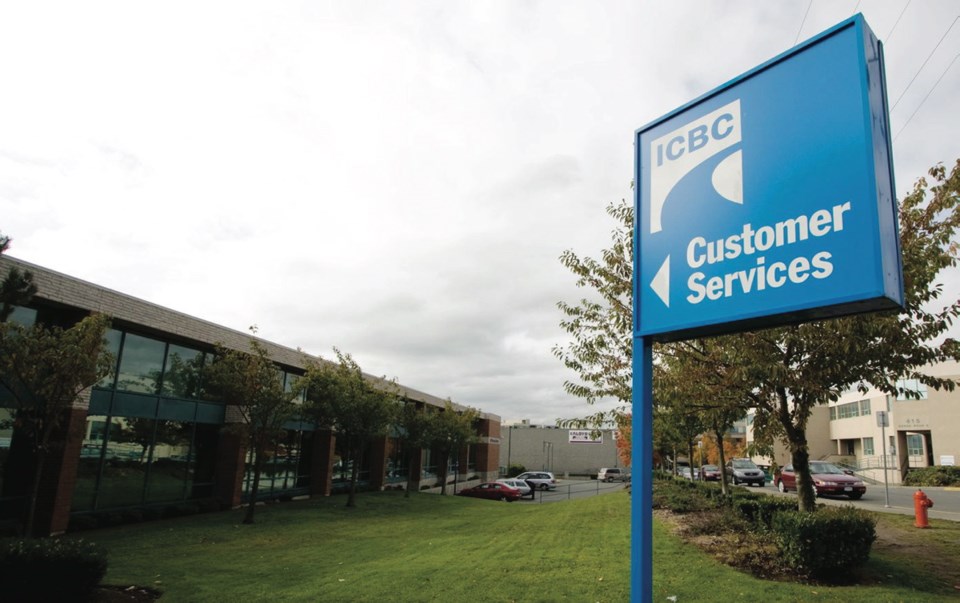B.C. motorists who might occasionally let a friend or family member drive their vehicle will need to pay a new $50 fee on their basic auto insurance next year or face the risk of large penalties if the borrower crashes.
The “unlisted driver protection” fee is a little-known part of the overhaul at the Insurance Corp. of B.C. that the B.C. government announced in August and will take effect in September 2019.
The changes are touted as a way to pull the Crown insurance agency out of its financial crisis. But critics say the driver protection plan is one example of several rate hikes masquerading as hidden fees that most drivers will feel pressured to pay out of caution or confusion.
“If your vehicle is involved in a crash caused by an unlisted driver and you didn’t have the unlisted driver protection, there will be a financial consequence,” ICBC’s Adam Grossman said. “We need to ensure that the right incentives exist and, more importantly, that all drivers aren’t paying for the decisions that individuals make about who they lend their vehicle to.”
The $50 annual protection plan would apply to anyone who intends to lend their vehicle fewer than 12 times a year to family members, friends, neighbours, acquaintances or co-workers — for example, if you lent someone your truck to help them move. If an owner doesn’t buy the extra protection, and someone with a worse safety record than the owner crashes their vehicle, ICBC would hit the owner with a steep fine.
Anyone who might drive that vehicle more than a dozen times in a year must be explicitly listed on the insurance and their driving record will be considered in calculating premiums.
The surcharge is one of several new levies motorists will face next year when insuring their vehicle with ICBC, which has a monopoly on basic auto insurance.
B.C. Attorney General David Eby has said the changes are intended to increase rates for the riskiest drivers while providing savings for those with safer records. He has said 39 per cent of ICBC customers could have rates fall by up to $50, 13 per cent by between $50 and $100, and 15 per cent by more than $100. However, those reductions are based on 2018 rates and could be wiped out by ICBC’s new fees and any rate hike for basic insurance in 2019.
Families — in particular those with a teenager or new driver trying to obtain a driver’s licence for the first time — appear to be particularly hard hit under the new rules.
An average family with a basic insurance rate of $1,094 this year could pay almost $200 more next year for the same vehicle, reflecting what ICBC says is the increased crash risk of young drivers.
“All of this adds up to a pretty steep rate increase that David Eby is trying to hide,” Opposition Liberal leader Andrew Wilkinson said. “It sounds like David Eby’s newborn ICBC is going to be a whole bunch of flat-rate fees with no real relationship to risk.”
All vehicle owners will soon be required by ICBC to list everyone who might drive their vehicle after September 2019, including spouses, children and other relatives (any friends or neighbours who will drive it more than 12 times a year).
ICBC’s 2019 rate structure will mean the principal operator (say a parent with a long clean-driving record) will account for 75 per cent of how ICBC sets the insurance premium on that vehicle. The highest-risk driver on the list will be used by ICBC to calculate the remaining 25 per cent of the rate.
ICBC also plans to levy a new learner premium for drivers who must use the red ‘L’ signs, of between $130 and $230 annually, depending on where you live in B.C., to “recognize the risk that a learner driver represents.”
A crash by a learner would not affect the premium of the vehicle owner, or the learner’s driving record, according to ICBC. But once that learner graduates to a full licence, their risk would increase insurance rates for a parent who lets them drive the family vehicle.



